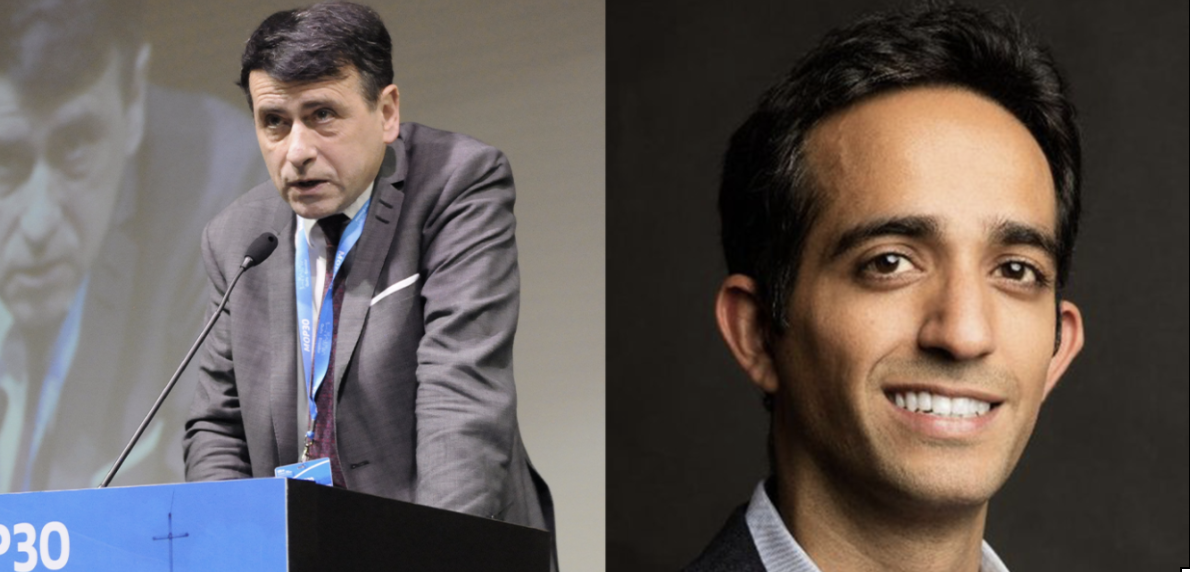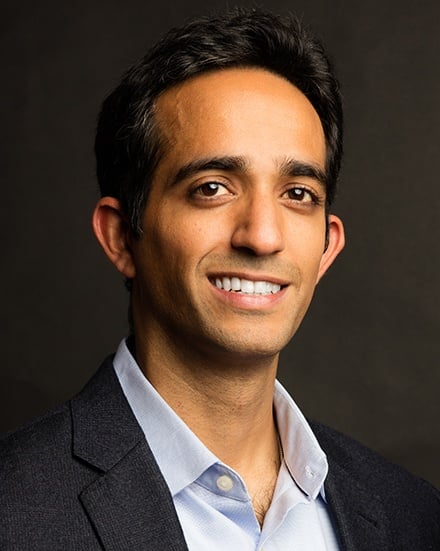Cooler Talk: Didier Coulomb of the IIFIIR

In this Cooler Talk, Didier Coulomb of the IIFIIR sits down with Manik Suri, Founder, and CEO of GlacierGrid, to talk about Covid-19’s impact on the cold chain, the state of the climate crisis, and how industry and public sector actors can partner to distribute cooling more equitably and sustainably.
Didier Coulomb is the Director-General of the International Institute of Refrigeration (IIFIIR), one of the world’s foremost authorities on cold chain, refrigeration, and air conditioning. Coming from a background in engineering, Coulomb began his career working in the dairy industry and the department of agriculture in his home country of France. His experience in science and public policy gives him an intimate perspective on refrigeration. In turn, this has allowed him to channel his broad knowledge to promote equitable, clean cooling around the world. While the 2016 Kigali Amendment may have been the recent catalyst for reform in the cooling industry, it lacks the crucial link between policy and action. Cooling reform requires a multi-pronged approach. In this spirit, promoting the reduction of energy use associated with cooling is one of Coulomb’s primary goals. The adoption of natural refrigerants is also a focus area within the IIFIIR. Globally, fluorinated gases quickly become one of the largest climate change contributors, accounting for 2.9% of greenhouse gas emissions. Energy consumption of refrigerating systems accounts for 5.9%. By providing a framework for education about alternatives and directing funding towards more sustainable refrigeration, particularly in the developing world, Coulomb is making the world a cooler and safer place.
Manik Suri: It's a pleasure to be here today to have this cooler talk with Didier Coulomb, a longtime expert in the international refrigeration space and the current Director-General of the IIFIIR. It's great to have you with us for this Cooler Talk today, Didier. I would appreciate it if you could please introduce yourself and tell us a little bit about your work.
Didier Coulomb: Well, I'm effectively the Director-General of the IIFIIR, which is an intergovernmental organization with 59 member countries, including the USA, but also countries in Europe, Asia, Africa, and the Americas. Thanks to our status, we have partnerships with various international organizations, especially United Nations agencies, and programs and relations with our different member countries. In the US, it is essentially the Department of Energy, and the National Institute of Standards and Technologies (NIST), which is in charge of finance.
How do you see the role of refrigeration in the context of some of the biggest challenges of our time, like Climate Change and COVID-19? How does refrigeration relate to these massive global challenges?
DC: Innovation is essential for the mitigation of Global Warming. Because we use a lot of energy across the cold chain, we need to use power more efficiently to improve refrigeration. We represent about 20% of worldwide electricity consumption. So, we have to reduce it, because of course, that has an impact on warming.Secondly, because we use greenhouse gases in most of our equipment, we have to reduce their use. We have the Montreal Protocol, which all the countries in the world signed, which is now dedicated to this goal thanks to the Kigali amendment. We need to improve the cold chain for food and other perishable products. It is vital for food because there is a lot of food waste. On average, about 13% of food produced is lost because of lack of refrigeration. Of course, we have much more waste, and refrigeration is responsible for food losses in all countries, predominantly developing countries. Every state has to reduce its impact because all the food you throw away wastes water, energy sources, etc. It is crucial to minimize this impact. Regarding COVID, it is clear that if we have vaccines and hope to have vaccines, we will need to store them to transport them. According to the WHO, we lose about 40% of the vaccines in developing countries because we lack a reliable cold chain.
MS: Where do you see refrigeration going from the standpoint of technical trends and market demand? How do you see the cold chain and refrigeration growing and changing in the years ahead?
DC: Well, first, because of these challenges, I'm convinced that innovation could continue to increase refrigeration. This is especially true in Africa and Southeast Asia, where you have an increase in the population and a currently under-equipped community. Secondly, we'll undoubtedly be concerned with energy issues. First, we will try to improve refrigeration equipment’s energy efficiency, like their fuel usage. Then, we need to develop the use of renewable energies. For instance, we can use solar energy for cooling in parts of Africa and the southern United States. But for me, and this is already in place in some countries, we would also like to use gases with low global warming potential. These are generally flammable or toxic, and we have to improve the safety of the systems. So this is also a challenge. This is not only a technical problem. We are trying to correctly modify the standards and codes of buildings to use these gases.
You mentioned COVID-19; there’s a saying, “never let a crisis go wasted.” How do you see COVID-19 affecting the interest in, and work on, the cold chain? Do you see growing investment in cooling and infrastructure? Are you seeing new technology emerging? Are policymakers taking note?
DC: Well, for me, it's still a challenge. I mean, I recently had some discussions with the government of India. They were conscious that we should do something about that because India’s cold chain is critical. But we still didn't see any practical consequences. I would like you to consider that you have relatively good cooling regarding the developed countries, such as in the US. The problem is maintenance at the consumer level. I should also mention this is true at the pharmacy level. I mean, according to some of our friend’s studies, there is a lack of consciousness among the people in charge of the products that they must be stored at a certain temperature level. We still have to improve that, including in the US. There is a problem of awareness and the fact that people will have to invest but cannot afford to. Within a few months, it will be too late for that. But for the future, I suppose that the pandemic will have impacts years after COVID-19. It is essential to take some lessons from the experience of COVID-19 to be more ready for the next one.
MS: Would you like to share any final remarks?
DC: My final remark is that we have to convince everybody that information is at the heart of sustainable development. Soon, we will have a lot of innovations, and awareness is essential. We have a lot of jobs to do because of the challenges we will face during this century. And because of these challenges, we'll have innovations and a lot of opportunities.








